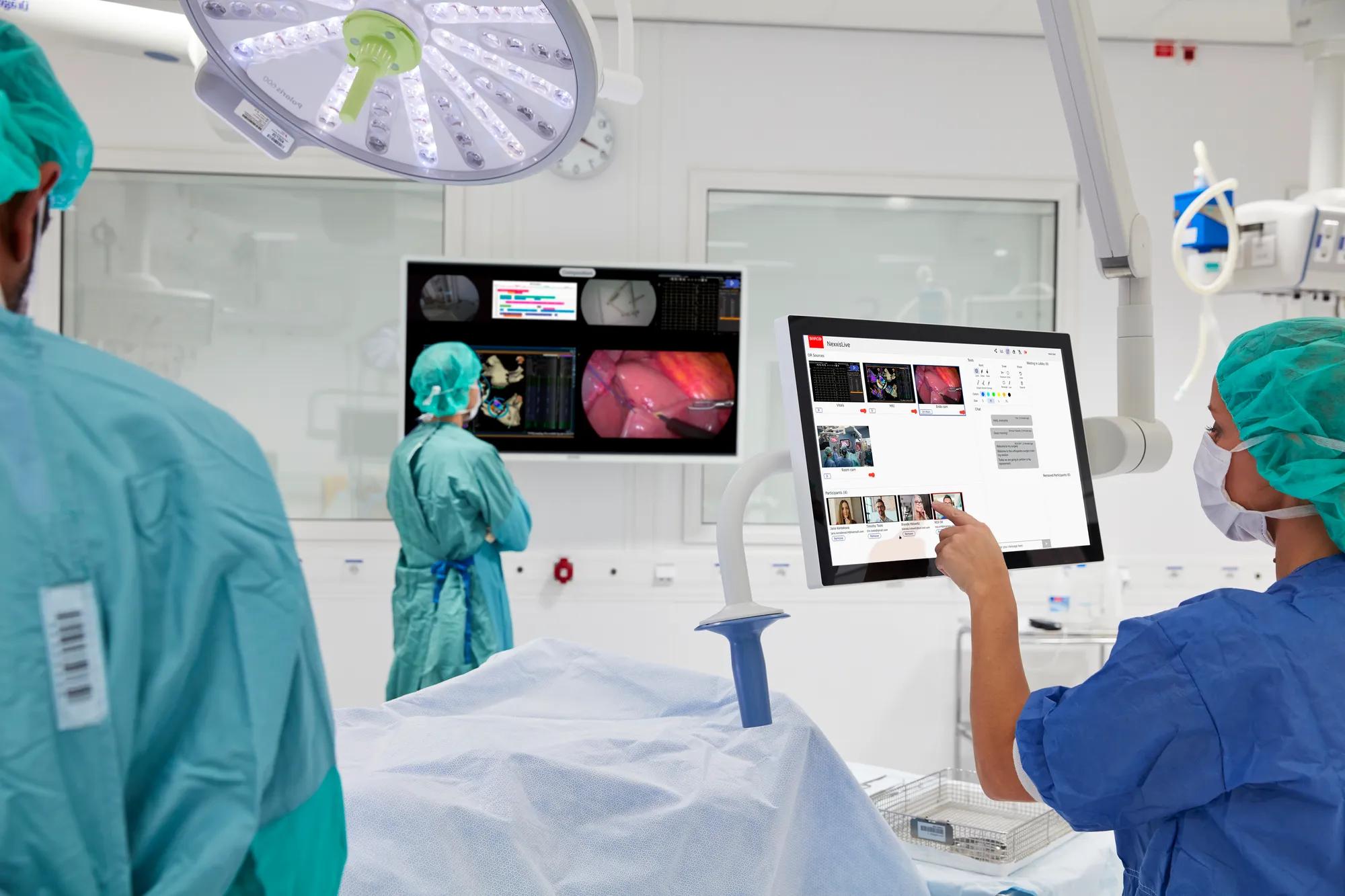The future of surgery: an interview with Dr Mathieu D’Hondt
医疗 · 2 分钟阅读
Last year, we set up a Surgical Advisory Board at Barco, with the goal of establishing closer contact with the people who use our solutions in the field, every day. Our first member was Dr Nick Maynard of Oxford University hospitals, whom we welcomed in September. The board has now expanded with Belgian Dr Mathieu D’Hondt.
We visited Dr D’Hondt at his main workplace, AZ Groeninge hospital in Kortrijk, Belgium, and had a chat about what drives him in his work as liver and pancreatic surgeon.
Passion for innovation
“I am all for innovation in the field of surgery. At the beginning of my career, I quite quickly moved from open to laparoscopic surgery, specializing in liver and pancreatic surgery. After that, I have taken the step to robotic surgery, which I am very passionate about today.”
“When I look at the future, augmented reality is something that interests me enormously. For example, implementing a 3D scan in a robot’s image could help us visualize vascularization and tumors, and eventually enable us to make procedures safer for the patient.”
Together with Dr D’Hondt, we tested our platform NexxisLive for remote collaboration during surgery.
Passing on knowledge and experience
“I am one of two proctors in Europe for robotic liver and pancreatic surgery. It is a gratifying job, because I want to help others grow in robotic surgery, supporting them with my experience.”
“I feel that today, there is a huge demand for education, training, and case observations in liver surgery. Robotics offers many possibilities to respond to that demand. For example, in laparoscopic surgery, indicating a certain structure on a camera image can be tricky. But in robotic surgery, the operative field is stable, and the surgeon is in control of the camera. Furthermore, you can come out of the robotic console and make annotations since you are not sterile.”

Surgery on demand
“In liver surgery, there is an infinite number of possible resections, and which one you get can be unpredictable. However, visiting surgeons often do want to see a very specific type of liver resection. As a result, they sometimes spend time and money traveling, to watch a procedure that eventually turns out not to be what they were looking for. Technological innovation can help avoid situations like these.”
“In short, in the field of minimally invasive liver and pancreatic surgery, I am greatly interested in innovation and education. I think that Barco is one of the big players in the field of healthcare. Your dedication to innovation and technology interests me a lot, and I look forward to our collaboration.”


